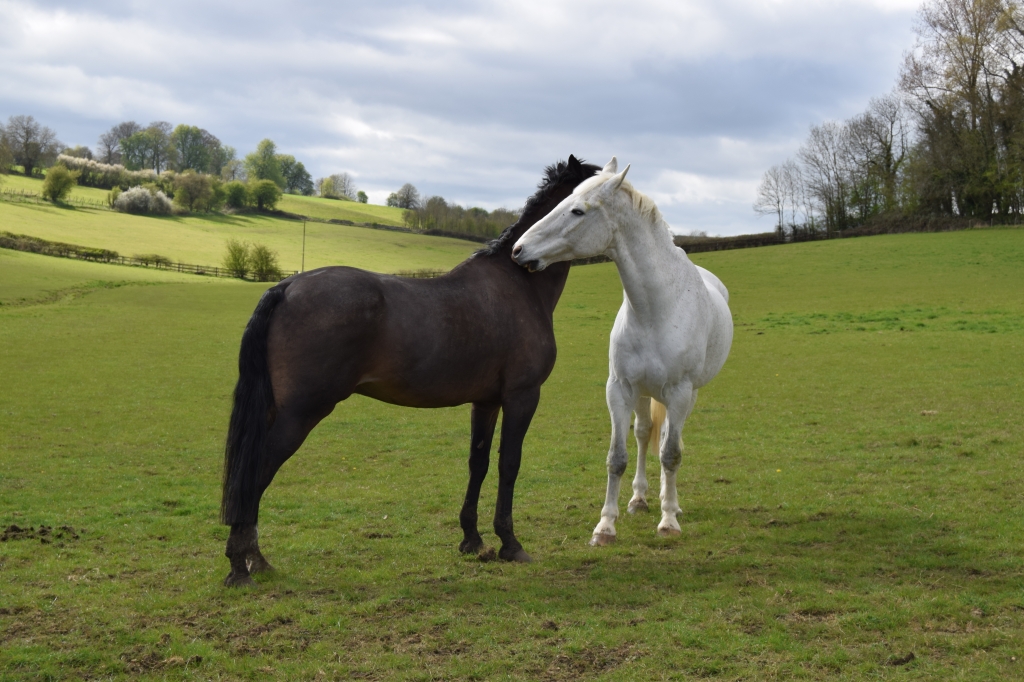
New Research Shows Social Behaviour Can Influence Body Condition
Social behaviour can influence the body condition of horses and ponies living in herds, according to a new study conducted by the University of Bristol and the Royal Veterinary College, in collaboration with SPILLERS™ through the WALTHAM™ equine studies group. The researchers believe the new findings could help address problems associated with equine obesity.
Horses and ponies are socially-foraging herbivores, who have evolved to live in herd environments within a distinct social hierarchy.
“Most owners and keepers know that individual horses and ponies experience different positives and negatives when living in groups,” said Clare Barfoot RNutr, Marketing and Research and Development Director at SPILLERS. “This is why we tend to choose field companions carefully so that a balanced and harmonious relationship can be maintained within the herd.”
Earlier studies have shown that the foraging success of individual animals in social groups may be partly influenced by their social status, but the importance of other social factors on foraging efficiency and body condition has not been explored until now.
The study, published last month in PeerJ, investigated associations between social dominance, body condition and interruptions to foraging behaviour in 20 separate domestic herds of horses and ponies.
Social dominance was measured for each individual alongside observations of winter foraging behaviour. During bouts of foraging, the duration and frequency of interruptions were recorded, with total interruption time taken as a proxy measure of foraging efficiency. The cause of each foraging interruption was also classified (vigilance, movement, social displacements given and received, scratching and startle responses). During the 120 hours of observation individual animals spent an average of 76.4% of their time foraging.
Vigilance frequency was the individual interruption behaviour most strongly and negatively associated with body condition score: lower body condition was associated with greater vigilance. However, vigilance was not associated with dominance status. The results suggest that certain individuals may be more likely to conduct vigilance, perhaps on behalf of the group or due to being more anxious or alert, regardless of their social status.
However, subordinate horses showed more movement whilst foraging and were more likely to receive displacements and be forced to move foraging location.
“These results are novel and exciting in that they present the first behavioural evidence to confirm previous theoretical work,” said Clare. “Neither the more vigilant nor the more frequently disturbed individuals compensated for their reduction in feed (energy) intake by spending more time foraging which probably explains the link with lower body condition. We hope that what we have learnt about the behaviour of individual horses when kept in groups could be included as a relevant factor when addressing health problems associated with equine obesity.”
If you would like any specific advice on feeding a horse or pony please call the SPILLERS Care-Line on 01908 226626.
References
- Foraging efficiency, social status and body condition in group-living horses and ponies Sarah L. Giles, Pat Harris, Sean A. Rands and Christine J. Nicol PeerJ 8:e10305 https://doi.org/10.7717/peerj.10305
More from Spillers

 5 years ago
5 years ago  1161 views
1161 views
 1 week ago
1 week ago